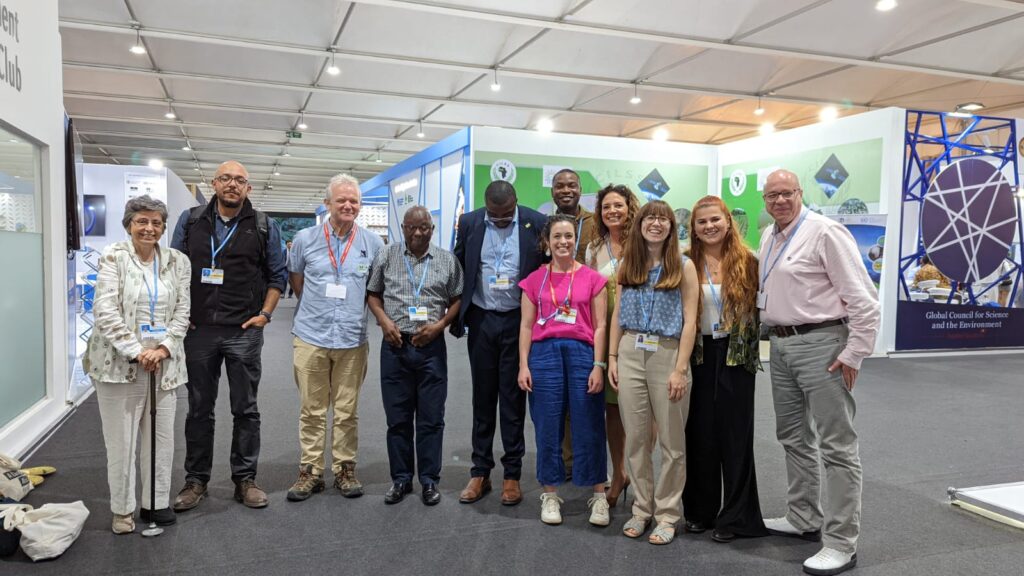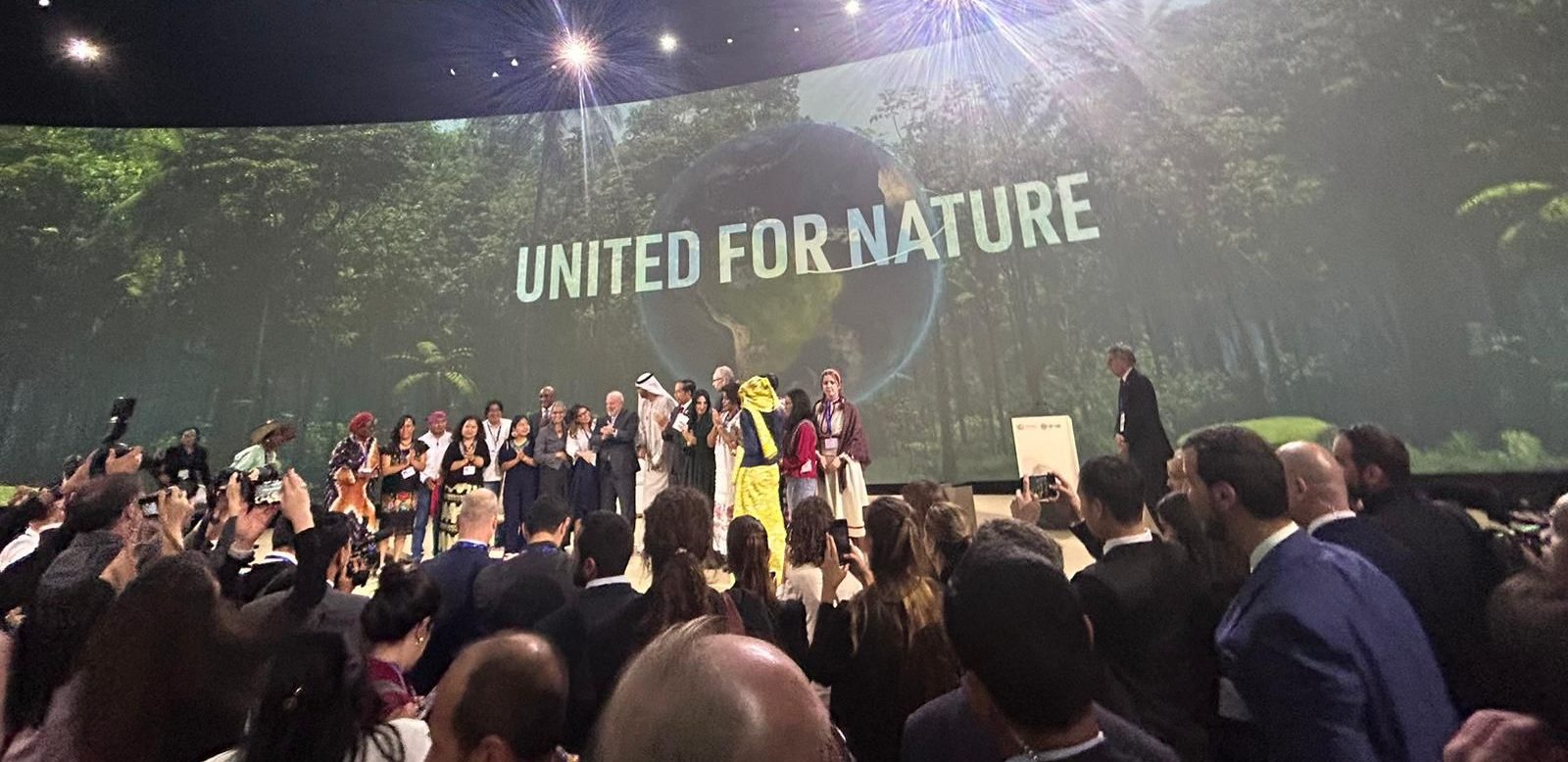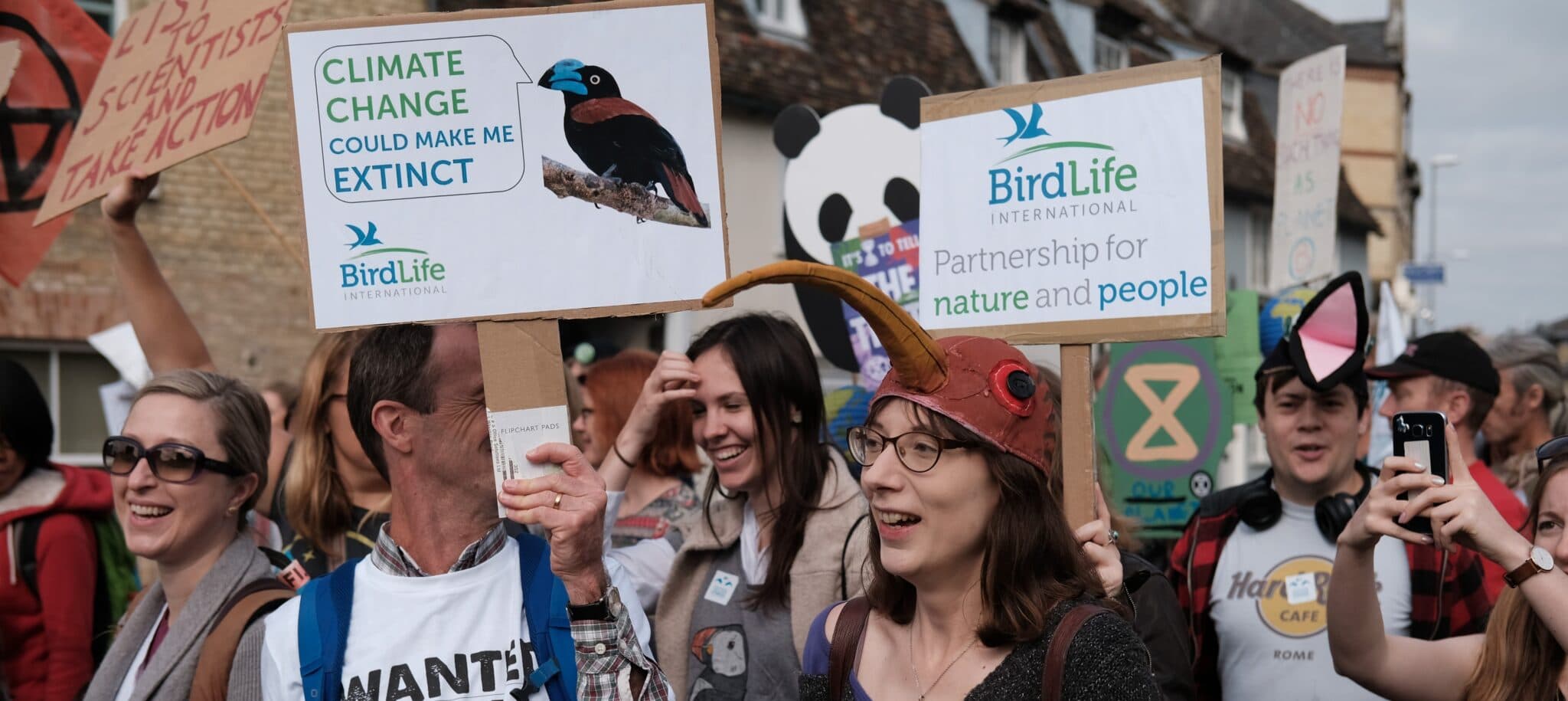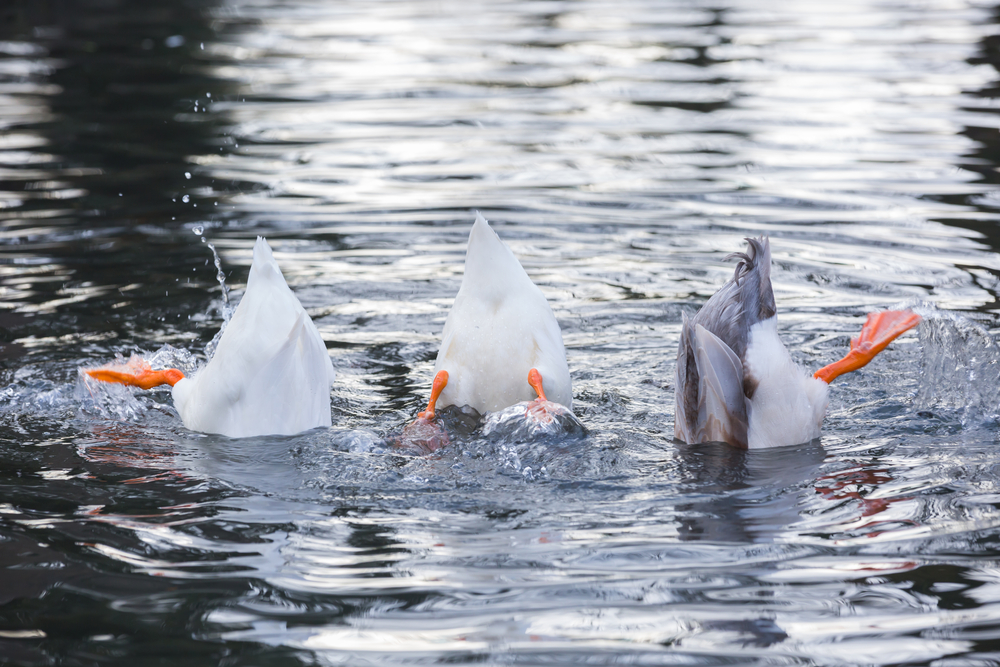Our planet “still in the emergency room”: Mixed results for climate and nature at COP27
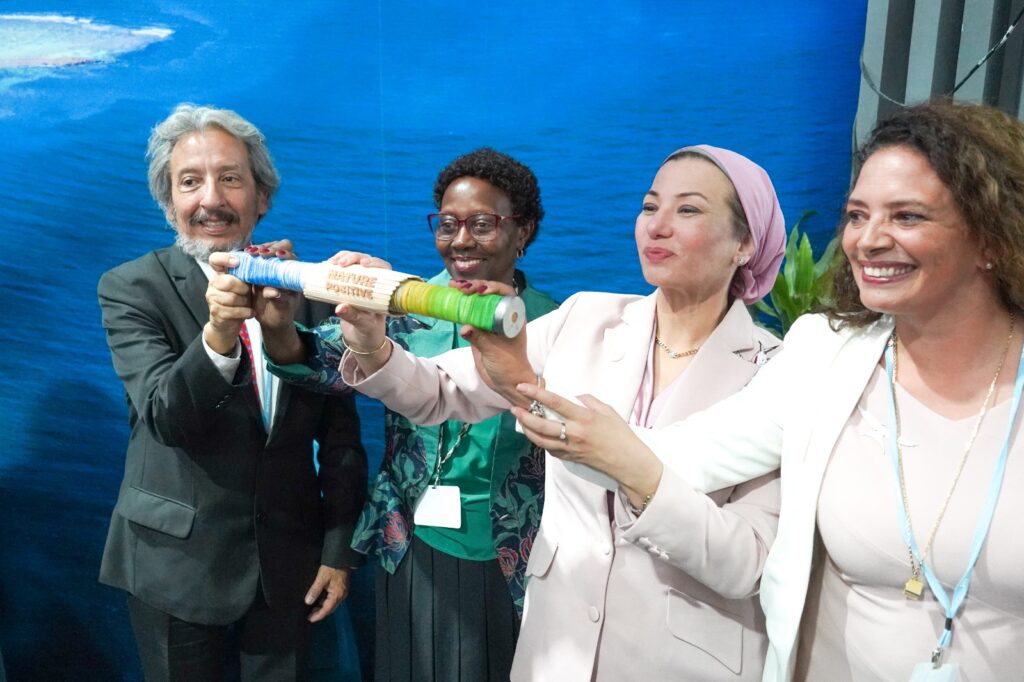
Running two days into overtime, COP27 has largely failed to live up to its billing as ‘the implementation COP’. While agreement on a fund to compensate developing countries for losses and damages due to climate change was a true breakthrough, as well as the hard-fought recognition of the right to a healthy environment making the final text, much else fell short, including on increasing climate action commitments to ‘keep 1.5 alive’, and strengthening nature-climate linkages.
Rhiannon Niven, Global Climate Policy Coordinator and BirdLife International COP27 delegation coordinator
COP27 – this year’s annual Conference of the Parties to the UN Framework Convention on Climate Change (UNFCCC) – finally wrapped up on Sunday, two days late. Held on African soil, in Sharm El-Sheikh, Egypt, it was marketed as ‘the implementation COP’, with a focus on Africa and the most vulnerable countries to climate change. The BirdLife International Partnership went into the COP with a call to governments to build on the wins from last year’s COP26 in Glasgow, where the role of nature in limiting global temperature rise to 1.5C was recognised for the first time. At COP27, we worked as one global team, strategising to identify national contacts and positions, setting up meetings with key Parties, and coordinating together to advocate for one set of asks focussed around the call for better integration of nature and climate, which we continued to push and adapt as the negotiations progressed. Our priority centred on the UNFCCC sending a strong political signal for an ambitious Convention of Biological Diversity COP15 in a few weeks, recognising the connectivity between the two conventions and crises.
With global temperature already at 1.1C above pre-industrial levels and current policies on track to reach about 2.7C, a lot was at stake to urgently step up action to reduce global emissions. However, this COP was full of chaos, unclear direction and politicisation not reflective of the urgency needed to tackle the current climate and biodiversity crises. Negotiations were often tense and emotional as Parties focused on key issues such as loss and damage, mitigation, fossil fuels, and adaptation.
We were pleased to see the big strategic win of a loss and damage facility, which has been a long-term sticking point and will begin the process of enabling the flow of funds that many poorer countries need to address the impacts of climate change that are already being felt. It’s now vital that the nuances and practicalities of its implementation are fast tracked. However, no amount of compensation will be enough if the planet is uninhabitable, and the collective commitment to stepping up climate mitigation fell far short. To still have Parties arguing about the phasing out of fossil fuels is unacceptable and much of the text has barely progressed from last year (if at all), with the commitment to 1.5C relegated to a section on science. Where is the ambition we were promised and desperately need?
The baton being passed to the Convention on Biological Diversity COP15 at the nature pavilion on COP27’s Biodiversity Day
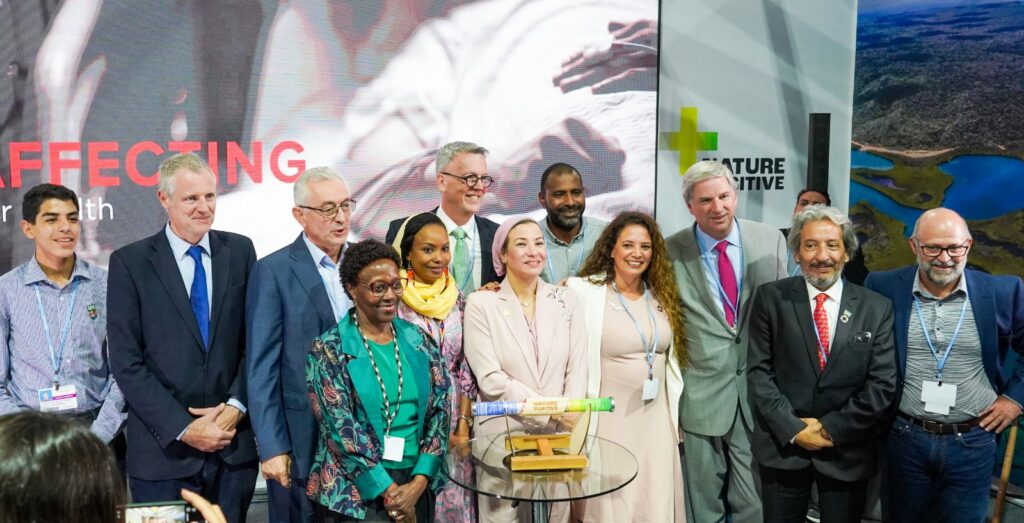
“We came to Sharm El Sheikh full of expectations that we will see concrete implementation plans that would twin COP27 and Convention on Biological Diversity COP15 because nature must be at the heart of tackling the climate crisis. Sharm El Sheikh did not turn out as we envisioned. Leaders must ensure Montreal does what they failed to do at Sharm El Sheikh by standing up and speaking for NATURE!”Dr Joseph Onoja, Director General, Nigeria Conservation Foundation (BirdLife Partner)
There were mixed results on the decisions relating to nature and ecosystems, with – as for much of the text – little advancement on what was agreed at COP26. We welcome the recognition of the need to act in a synergistic and comprehensive manner in tackling the climate and biodiversity crises, but it did not go far enough. We also welcome the new sections on forests and oceans, and the recognition of the importance of protecting, conserving and restoring water-related ecosystems for climate action (as echoed in a key climate-related resolution at the Ramsar Convention on Wetlands COP14 which took place during the first week of COP27). Alongside this, for the first time, countries are encouraged to consider nature-based solutions and ecosystem-based approaches to tackling climate change. To avoid the risks of greenwashing, these nature-based solutions will need to be accompanied by robust environmental and social safeguards, and to be effective, action on nature must also be accompanied by rapid, deep cuts in emissions.
Importantly, the final COP27 decision also highlighted the importance of respecting, protecting and considering human rights, including the right to a clean, healthy and sustainable environment, as recently recognised by the UN General Assembly – a right promoted through our #1Planet1Right campaign. Once again the global BirdLife family rapidly mobilised here, with BirdLife Partners, both at the conference and back home, making up over 170 civil society organisations appealing to their national governments to uphold their commitments through direct advocacy to delegations and pressure through public communications.
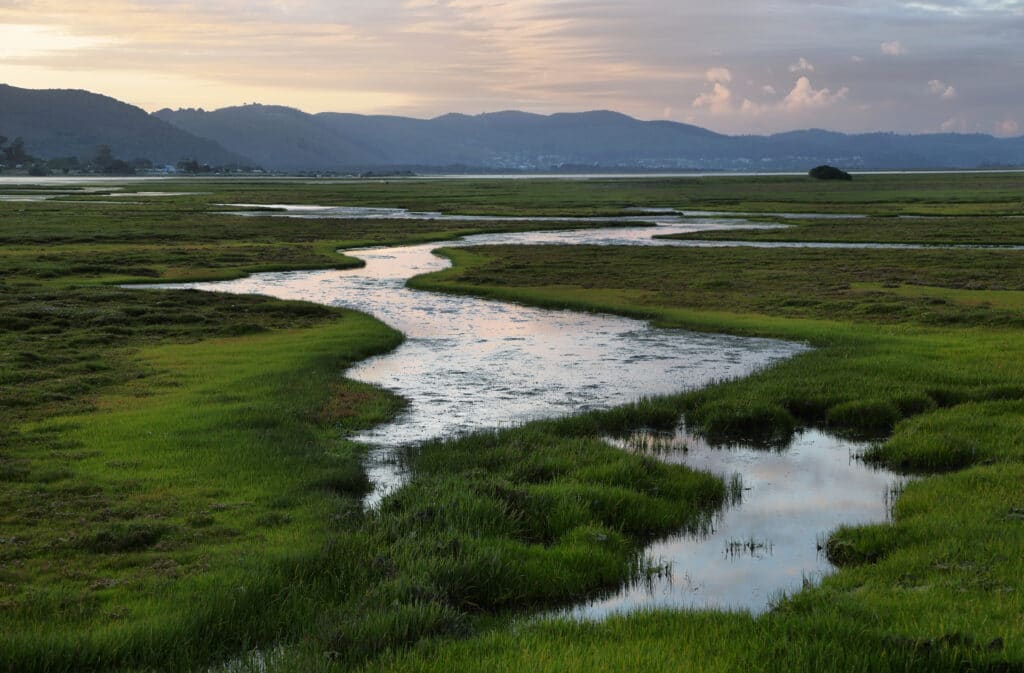
It was disappointing, however, that our call for sending a political signal for an ambitious and transformative post-2020 Global Biodiversity Framework to be signed off under the Convention of Biological Diversity (CBD) in December was not reflected in the final text outcome. This was despite support from a significant number of countries. That said, we collectively made the message loud and clear at COP27 that nature and climate are two sides of the same coin, and that we can’t make progress on one without the other, and we will join governments in carrying this message to the CBD COP15 in Montreal next month. COP15 must mark a ‘Paris moment’ for biodiversity, setting a clear mission and targets to ensure we are nature-positive by 2030, in the way that the Paris Agreement in 2015 became a game-changer for climate.
We recognise the leadership from Parties that pushed for increased ambition on nature and biodiversity until the very end – thank you to the negotiators who listened and championed our calls from the Environmental Integrity Group, UK, Canada, China, Argentina, Australia, Colombia, European Union, Norway, Democratic Republic of the Congo, Barbados, Papua New Guinea, and others. To everyone else, we will continue to apply pressure and mobilise the Partnership and allies throughout the year, and see you in 2023 in Dubai for COP28.
Our BirdLife Partners around the globe confirm the urgency of decisive action. With weak ambition at COP27, we will continue to intensively fight for immediate, ambitious action and transparency, and hold the Egyptian Presidency to account as they hand over to the United Arab Emirates – a well-known ‘petrostate’ – for COP28, where we will assess our global progress on the Paris goals and must focus on ensuring that the transition to ‘low emission’ and renewable energy is rapid, truly sustainable and takes nature into account. With the current state of the natural world, it’s vital we take every opportunity to urgently push to keep 1.5C alive for nature, people and ultimately the entire planet.
What members of the BirdLife Partnership in attendance said about COP27:
“This was supposed to be ‘the implementation COP’, but all we heard was weak words, more pledges, and a lack of progress. Parties around the world must step up now and put NATURE at the HEART of everything. 1.5C is not an ambition, it’s an absolute limit and we can’t achieve it without nature. We now look to Montreal, and the agreement of an ambitious and transformative Global Biodiversity Framework at CBD COP15, for Parties to make the decision we didn’t make in Sharm el-Sheikh. We need finance and implementation from leaders NOW, for nature, climate and people, for all our survival.”
Patricia Zurita, Chief Executive Officer, BirdLife International
“It was tremendous seeing such an immense environmental, or perhaps “existential” event taking place on Egyptian soil. Locally, the perceptions of climate change are still tenuous. The COP provided a unique opportunity to highlight the seriousness of the seemingly rapidly ensuing disruption in our global ecosystem. However, this opportunity did not seem to stimulate consciousness beyond viewing this as an opportunity to secure subsidy to compensate for north-south discrepancy in the carbon footprint and contribution to the climate crisis, albeit rightfully so. The recognition of nature and biodiversity, and the critical importance of restoring the function of natural ecosystems in order to help restore our climate and our continued existence, seemed to take the backstage, almost as a decorative issue! In Egypt, which remains the host and president of the COP for the coming year, we need to change the perception that nature and biodiversity are still secondary, and instead must be incorporated into local measures to produce more renewable energy and implement other green solutions through a more inclusive approach, which considers the true value of our natural ecosystems.”
Sherif Baha El Din, Chairman of the Board, Nature Conservation Egypt (BirdLife in Egypt)
“After 30 years in the making, world leaders have finally agreed on a fund for loss and damage. However, no significant progress on limiting the climate crisis and its effects was made. Without significantly increasing our efforts on mitigation to keep 1.5C alive, loss and damage for vulnerable communities will become even more unmanageable.”
Carla Freund, Energy Transition Policy Officer, NABU (BirdLife in Germany)
“COP27 saw more discussion than ever before of the need to tackle the climate and nature crises together. In the decision text, countries were encouraged for the first time to harness the power of nature through nature-based solutions and ecosystem-based approaches to tackling climate change. We’ll need to see this accompanied by robust safeguards to ensure the right outcomes for people, nature and climate.”
Melanie Coath, Principal Policy Officer, RSPB (BirdLife in the UK)
“COP27 marked a historic moment for climate justice but a missed opportunity to accelerate emissions reductions and fossil fuel phaseout and send a strong message of support for an ambitious, transformative deal for nature at the forthcoming summit of the UN biodiversity convention in Canada. This puts even greater pressure on the already tough challenge facing governments there, but they must not fail us on biodiversity action, as they have in Egypt on climate action. It’s also clear that the next climate summit in Dubai must have two clear objectives: accelerate the elimination of fossil fuels from the world’s energy mix; and guarantee that ecosystems and biodiversity are front and centre in the fight against climate change.”
David Howell, Climate and Energy Advisor, SEO/BirdLife (BirdLife in Spain)
“Although the final decision of the conference includes important progress on loss and damages compensation, it presents insufficient progress on the issue of biodiversity and ecosystem protection. The decision does recognize the importance of nature as part of the solutions to climate change, but our call for a global plan to protect and restore natural systems was left out. The Society for the Protection of Nature in Israel will continue its activities to protect the unique habitat that we have and will work to restore natural systems for the benefit of biological diversity, and for coping with the climate crisis.”
Iris Hann, CEO, Society for the Protection of Nature in Israel (BirdLife Partner)
“The past 12 days have been a real life experience for the SCNL team in Sharm. COP27 brought out many practical issues that we all together as partners have fought to see through the final decisions. Some of our asks went through, some did not, we all made such lasting memories at Sharm that will be cherished in our hearts for a long time. It was worth the efforts and the sleepless night of each and every member of the BirdLife team. SCNL will take the process to the next level at CBD in Montreal.”
Michael F. GARBO, Executive Director, Society for the Conservation of Nature in Liberia (BirdLife Partner)
“The Royal Society for the Conservation of Nature (RSCN) came to COP27 to shed light on our national and regional efforts that are being exerted to conserve biodiversity and many other sectors from climate change impacts and to exchange expertise in this field. The loss of natural habitats due to climate change is a serious threat to the diversity of flora and fauna species, hence collective efforts are key to face it.”
Othman Al Tawalbeh, Protected Areas Manager, Royal Society for the Conservation of Nature (BirdLife in Jordan)
“We came to Sharm El Sheikh full of expectations that we will see concrete IMPLEMENTATION plans that would twin COP27 and CBD COP15 because NATURE must be at the heart of tackling the climate crisis. Sharm El Sheikh did not turn out as we envisioned. Leaders must ensure Montreal does what they failed to do at Sharm El Sheikh by standing up and speaking for NATURE!!!”
Dr Joseph Onoja, Director General, Nigeria Conservation Foundation (BirdLife Partner)
